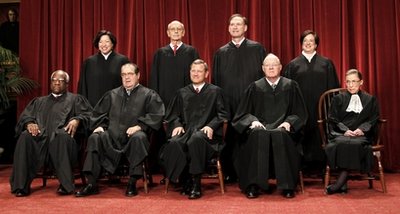
3. This proceeding is called an arraignment. The principal purpose of arraignment is for you to enter a plea to the charges. Before taking your plea, I will advise you of your rights and options. I will advise you of the offense(s) you are charged with and will give you a copy of the criminal complaint or citation if you do not already have one. At that point, you will enter a plea to the charges.
4. You have the right to:
* Plead not guilty;
* A trial on the charge(s);
* Be released on bail, if you are still in custody;
* The assistance of an attorney at all stages of the case. If you cannot afford to hire an attorney, the court may appoint an attorney to represent you if you qualify for such representation.
* See and hear the witnesses at trial and to cross-examine them or ask them questions;
* To present evidence in your own behalf;
* To have the court issue subpoenas for you directing your witnesses to be in court for trial and to testify;
* To remain silent and not be forced to incriminate yourself. That means that you are never required to testify. And,
* To be presumed innocent until the prosecution proves your guilt beyond a reasonable doubt. You are not required to prove anything. The prosecution must prove the charge(s) and must do so beyond a reasonable doubt if the case goes to trial.
5. Do you understand these rights? Do you have any questions about these rights? [If the court is uncertain that the defendant understands any of these rights, the court may ask the defendant to explain what had just been stated: e.g. “Could you please explain to me how you understand what I have just told you? I want to be certain that you are clear about what I have said.”]
6. [If the defendant does not have counsel, you must determine whether the defendant is entitled to court-appointed counsel. ]
Do you understand that you have the right to have an attorney represent you and that if you cannot afford an attorney, one may be appointed for you if you qualify for such representation?
[If no, rephrase the question.]
[If yes, ask]: Can you afford to hire an attorney or consult with an attorney for advice?
[If yes, determine whether the defendant wants an attorney]: Do you want to hire or consult with an attorney?
[If yes, reset the arraignment for a week later to allow the defendant a reasonable opportunity to hire an attorney or consult an attorney for advice.]
[If no, determine whether the defendant is making a knowing, intelligent, and voluntary waiver of counsel by asking the following questions]:
* Do you understand that if you are convicted you may be sentenced to jail?
* Do you understand the consequences of waiving counsel?
* Is your decision to waive counsel made voluntarily, without threats or coercion?
* Do you wish to waive your right to an attorney and represent yourself?
[If yes to all questions, have the defendant sign a Waiver of Counsel form, Criminal Form 9-401A, and continue with the arraignment.]
[If no, ask]: Do you wish to request a court-appointed attorney?
[If yes, you must make an indigency determination and appoint counsel if indigent.]
[If no, you must determine whether the defendant is making a knowing, intelligent, and voluntary waiver of counsel by asking the following questions]:
* Do you understand that if you are convicted you may be sentenced to jail?
* Do you understand the consequences of waiving counsel?
* Is your decision to waive counsel made voluntarily, without threats or coercion?
* Do you wish to waive your right to an attorney and represent yourself?
[If yes to all questions, have the defendant sign a Waiver of Counsel form, Criminal Form 9-401A, and continue with the arraignment.]
7. Have you received a copy of the criminal complaint or citation? [If no, provide the defendant a copy.]
8. You are charged with .
[Read the ordinance(s) aloud.]
9. Do you understand the charge(s)?
10. [NOTE: If the charge is DWI or Aggravated DWI, you must inform the defendant of the maximum and mandatory minimum penalties for a first, second, and third offense

No comments:
Post a Comment